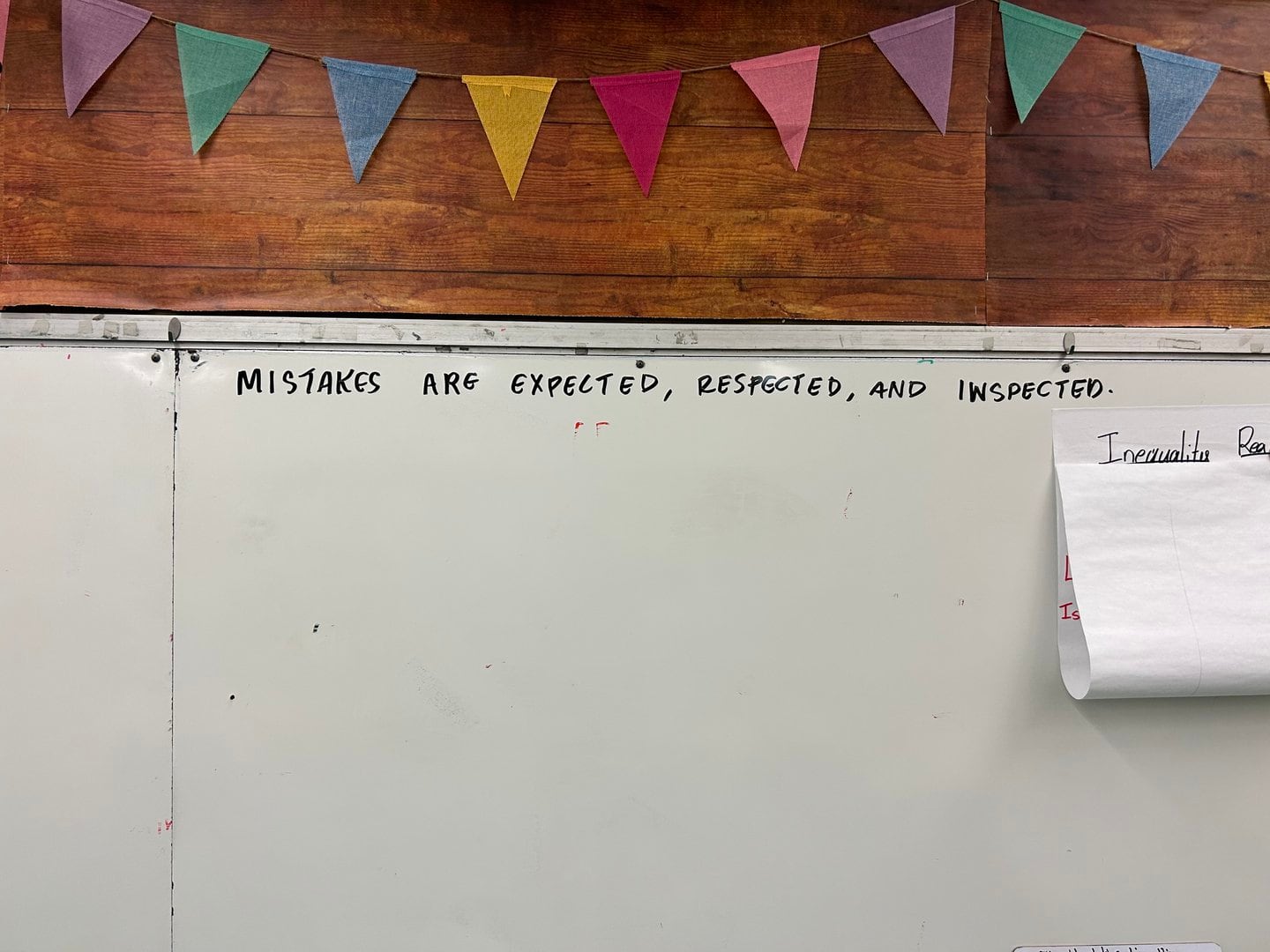Reflecting on the tenets that shape our educational practices is fundamental for …
New curriculum requirement seeks to boost 9th-grade algebra in NYC
Carlos Changemaker

The Algebra I warm-up exercise for ninth graders in Katie Carson’s class at Energy Tech High School had the students scratching their heads. They couldn’t quite remember how to use the “greater than” and “less than” signs. One student admitted that they hadn’t seen these symbols since elementary school.
Instead of providing an explanation, Carson decided to ask her students what they had noticed about how these signs work. One student, Adam, volunteered the incorrect answer, saying, “If the open side is pointing to the left, it’s less than, and if it’s to the right it’s greater.”
Although Adam’s answer was wrong, Carson wrote it on the whiteboard and decided to test it with some sample problems. A minute later, Adam interjected again, realizing his mistake. He said, “It doesn’t work. I think it’s whatever the open side is on, that’s greater.”
This teaching approach of dropping students into unfamiliar math problems with minimal explanation and refraining from correcting their errors may seem counterintuitive. However, Carson believes that it is a transformative approach that has improved her teaching. This approach, known as Illustrative Math, is now being implemented across New York City’s high schools.
Carson’s school was among the first to adopt Illustrative Math, the new curriculum that aims to improve the teaching of algebra in the city’s more than 400 high schools. This year, over 260 schools have started using Illustrative Math for Algebra I, with additional support and training from the Education Department. The curriculum mandate for Algebra I is expected to expand further next year.

The implementation of the new curriculum comes at a crucial time, as less than half of the city’s elementary and middle school students achieved proficiency in state math exams this year. The pandemic has further exacerbated the challenge, with a significant decline in passage rates for high schoolers on the year-end Algebra II Regents exam.



